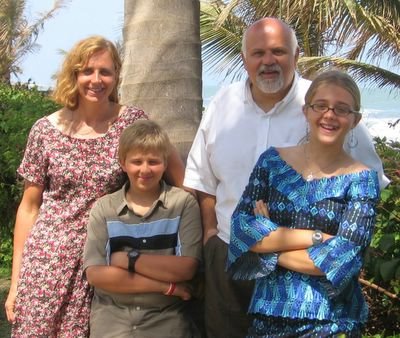Poverty in Africa is providing new challenges to our lifestyle choices. One of Renita’s favorite slogans is “Live simply so that others can simply live.” I have believed the truth of this for a while now, but here in Africa, there is immediacy to it. Last night the implications hammered me.
Next door, right next door, lives a man who has been a support and helper to us since the first time we visited Liberia. A small man, he is deeply humble, gracious and yet speaks with authority, so there is a “Ghandi-esque” quality about him. His name is Sam Reeves, and he is our former pastor’s father. When we first visited Liberia in 2004, there were about eight people living in his three bedroom house, including several children not his own. Now there are twelve or thirteen living there, and more children. His pension provides about $20.00 US a month. There are little jobs he does in addition that pays less than a subsistence wage for him. When he runs out of rice or gas for his generator, he and those he cares for simply wait in the dark. They do not complain, for God has always been faithful. And they are grateful for the rice or the gas when it comes. After all, many of his neighbors do not even have the generator.
The hammer that hit me came when I powered up our little generator for the evening. Next door, it was dark. They had run out of gas. In fact, they ran out of gas three nights ago. I heard it sputtering and then die, but the next night my neighbor asked me for a gallon, and thanks to you I had it, so I gave it to him. But last night he did not come to ask, so his house was dark while ours was full of light. In addition, I was aware that he was almost out of rice, and I had half of a hundred pound bag in the pantry. The hammer was in the form of a question: “How can I enjoy family power when my neighbors have none?” And then, “How can I eat rice when their bag is empty?” These are deeply troubling questions, because even if we gave all our food and gas to our neighbors, the many neighbors beyond next door are still out of both frequently. So on the one hand, I cannot have rice or gas when my next door neighbor is out, but on the other hand, I do not have the resources to apply this to everyone in my community. So we will do what we can. And since we are on a limited budget, it means there will be some nights we both sit by candle light, and some nights we pool our resources so everyone eats. For us, “living more simply” will have direct implications on our neighbors’ quality of life. Using less gas means our neighbors get to have light. Using less food, or sharing more means the kids next door get a bit more rice with their bitterballs. Living simply so others may simply live means also our neighbors and us become more interconnected. Our needs become theirs and vice versa. And while living a bit more simply is a bit scary for me, I know in my heart it is simply… right.
More pics soon. We miss you all.
PS I don’t think I’ve said it lately, but I don’t think you can know from there how much we appreciate you from here. We would not be here, could not make the progress we are making, without your steady and faithful support. Tuesday, as I was on my way back home from Monrovia, I had a blowout. Getting a flat anywhere is a drag, but getting a flat on the road from Monrovia is a bit unnerving. As I changed the tire with my all-precious spare, I was ok. I knew God, through you, had already taken care of the replacement tire I would need. So thank you for keeping the Reed wheels from falling off.
Thursday, August 18, 2005
Subscribe to:
Comments (Atom)


